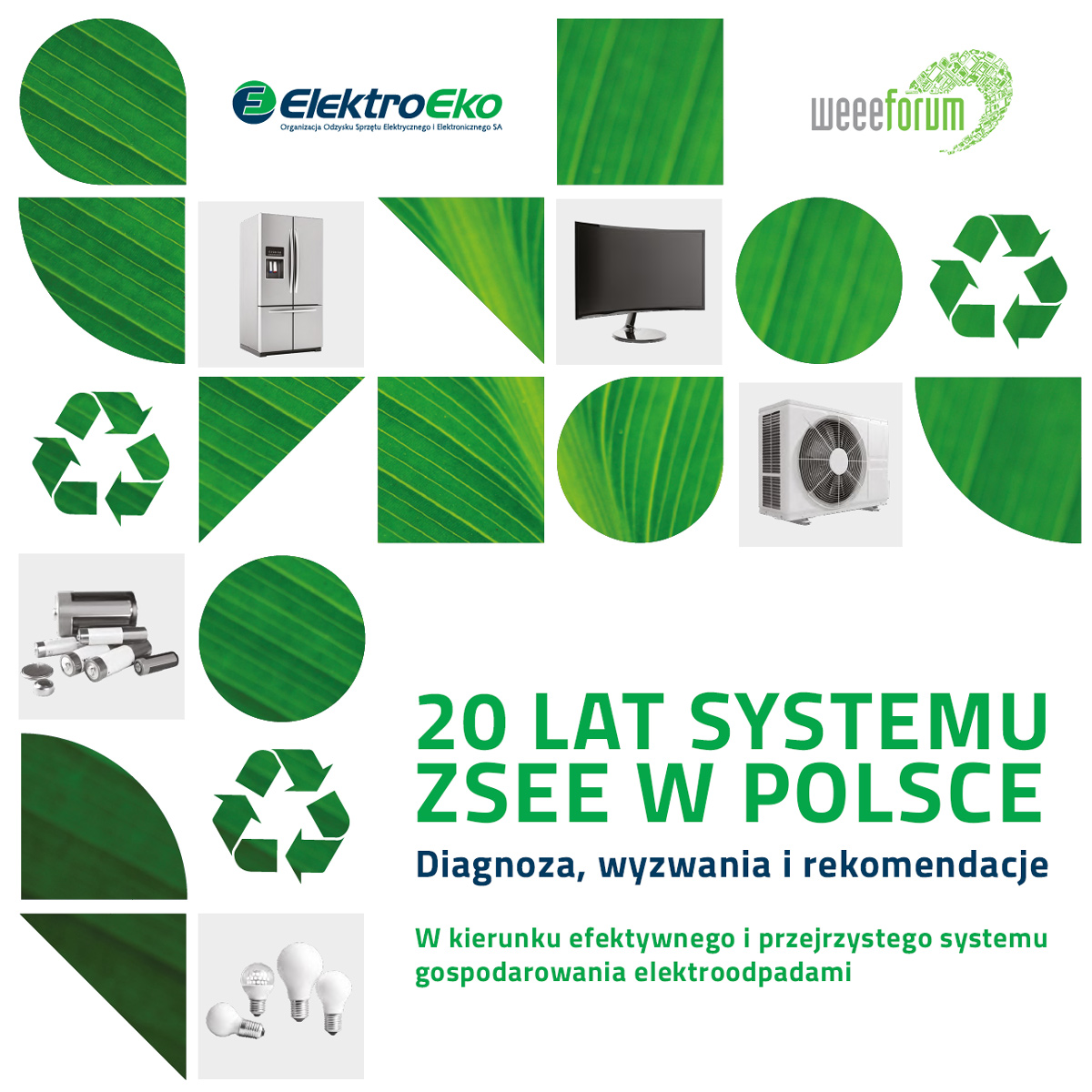Raport „20 lat systemu ZSEE w Polsce” przedstawia analizę systemów rozszerzonej odpowiedzialności producenta (ROP) w Europie i porównuje je z modelem działającym w Polsce. Oparty jest na informacjach zebranych przez członków WEEE Forum z krajów posiadających najbardziej rozwinięte i skuteczne systemy gospodarowania elektroodpadami.
Publikacja pokazuje nadchodzące zmiany regulacyjne w Unii Europejskiej, omawia wyzwania związane z „szarą strefą” elektroodpadów i znaczeniem uczciwej konkurencji. Zawiera także rekomendację 12 filarów wzorcowego systemu gospodarowania ZSEE, które stanowią punkt wyjścia do otwartej dyskusji o przyszłości systemu w Polsce.
Raport powstał w szczególnym momencie – mija dwadzieścia lat od uruchomienia systemu gospodarowania elektroodpadami w Polsce i działalności ElektroEko. To czas, w którym udało się zbudować sprawny system zbiórki, podnieść świadomość ekologiczną społeczeństwa i rozwinąć nowoczesne technologie przetwarzania. Dziś, w obliczu nowych wyzwań, potrzebna jest szeroka debata o kierunkach zmian.
👉 [Pobierz raport], aby zapoznać się z pełną analizą
Report: 20 years of the WEEE EPR scheme in Poland
The report „20 years of the WEEE EPR scheme in Poland” presents an analysis of Extended Producer Responsibility (EPR) systems across Europe and compares them with the model operating in Poland. The report is based on information collected by members of WEEE Forum from countries with the most developed and effective e-waste management systems.
The publication highlights upcoming regulatory changes in the European Union, tackles the challenges associated with the “gray market” of e-waste and the importance of level playing field. It also includes a recommendation for 12 pillars of a model WEEE management system, which form basis for starting an open discussion about the future of the system in Poland.
The report was drafted at a special moment – twenty years after the launch of the e-waste management system in Poland and ElektroEko business operations. Over this time an efficient collection system has been built, public environmental awareness has been raised and modern treatment technologies have been developed. Today, in the face of new challenges, a broad debate on the direction of change is called for.
👉 [Download the report] for the full analysis



